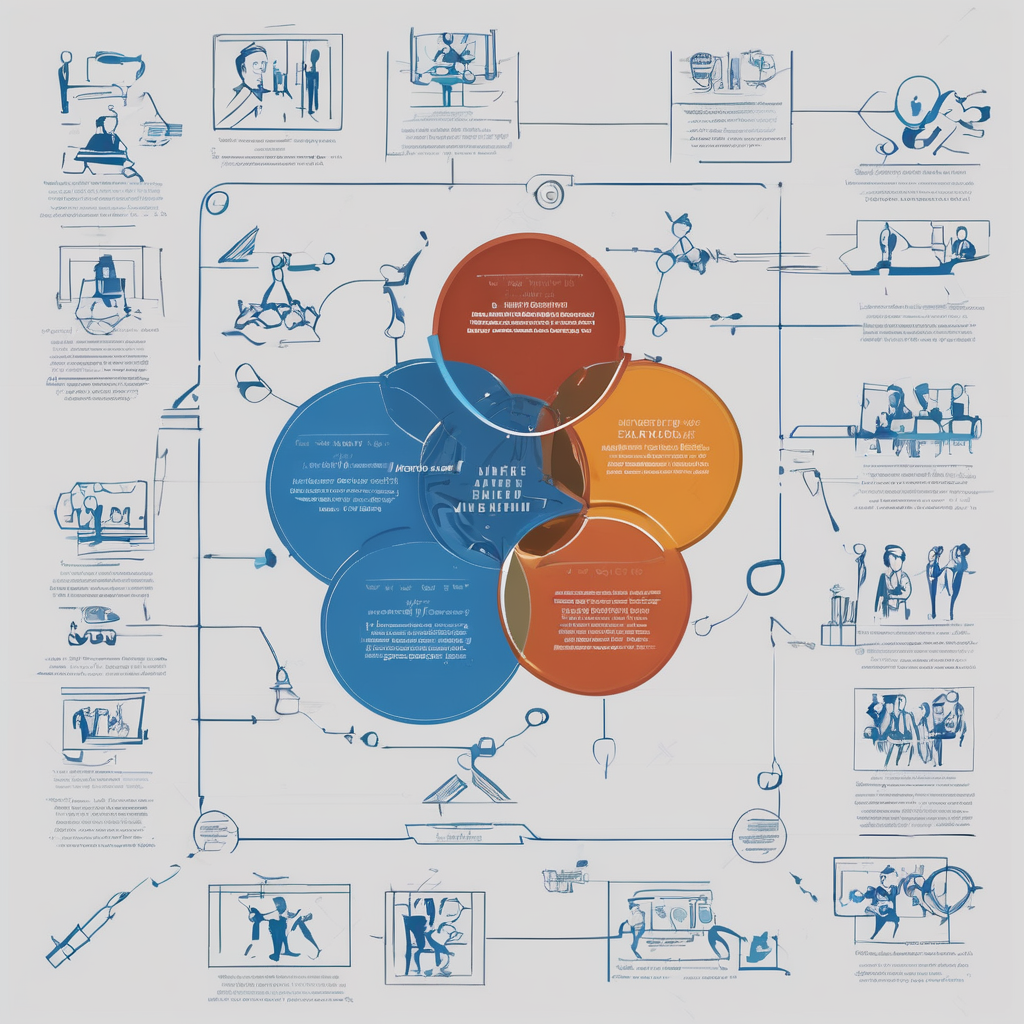In a competitive landscape, UK hotels must innovate to enhance guest loyalty and satisfaction. Traditional practices can only take you so far; embracing creativity is key. From personalised experiences to engaging loyalty programs, hotels can foster deeper connections with guests. Discover actionable strategies that not only elevate the guest experience but also drive long-term loyalty. Let’s explore how thinking outside the box can redefine hospitality in the UK.
Innovative Loyalty Programs
In the competitive UK hotel industry, loyalty programs for hotels have become pivotal in attracting and retaining guests. These programs often incorporate tiered rewards systems, which are highly effective in encouraging repeat visits. By offering escalating benefits, hotels incentivize guests to increase their stays and spending, thus enhancing customer loyalty.
Also to discover : Creative Approaches for UK Tourism Boards to Entice Global Travelers in a Post-Pandemic World
Tiered rewards systems operate on a straightforward principle: the more a guest stays, the more benefits they receive. These can range from complimentary breakfasts and room upgrades to exclusive access to events and amenities. Such strategies not only boost customer satisfaction but also provide hotels with valuable data on guest preferences and behaviours.
UK hotel loyalty strategies often include innovative elements that differentiate them from standard programs. For instance, some hotels have adopted experiential rewards, offering unique local experiences or personalised services that go beyond traditional perks. This approach not only enriches the guest experience but also strengthens the emotional connection between the guest and the brand.
Also to see : Enhancing Travel Experiences: Leveraging Virtual Reality for Immersive Previews in UK Travel Agencies
Case studies from leading UK hotels highlight the success of these innovative loyalty initiatives. For example, a renowned London hotel introduced a program that partners with local businesses to offer exclusive discounts and experiences, significantly boosting guest engagement and loyalty. These strategies exemplify how thoughtful loyalty programs can transform guest relationships and drive business success.
Personalization in Guest Experience
In the modern hotel industry, personalized services in hotels have become essential for enhancing the guest experience. By leveraging data analysis, hotels can gain crucial insights into guest preferences, allowing them to tailor services specifically to individual needs. This approach not only improves guest satisfaction but also fosters a deeper connection between guests and the hotel brand.
Understanding guest preferences is key. Through advanced data analytics, hotels can identify patterns in guest behaviour, such as preferred room types, dining choices, and activity interests. By analysing this data, hotels can offer personalized recommendations and services that align with each guest’s unique preferences.
Examples of personalized services include offering customised room amenities, suggesting local activities based on past interests, and providing tailored dining experiences. For instance, a hotel might offer a guest their preferred pillow type or suggest a nearby restaurant that fits their culinary tastes.
Technology plays a significant role in facilitating these personalized experiences. With the help of mobile apps and AI-driven platforms, hotels can efficiently manage guest preferences and deliver tailored services in real-time. These technological solutions not only streamline operations but also ensure that guests receive a seamless and personalized stay, thereby enhancing overall satisfaction and loyalty.
Unique Amenities and Offerings
In the evolving landscape of hospitality, hotel amenities and unique offerings in UK hotels have become vital in crafting memorable guest experiences. Hotels are increasingly introducing innovative amenities that go beyond the conventional, aiming to surprise and delight guests.
One trend is the collaboration with local businesses to create unique guest packages. These partnerships allow hotels to offer exclusive experiences that showcase the local culture and attractions. For instance, some hotels team up with nearby wellness centres to provide bespoke wellness retreats, offering guests a rejuvenating escape right within the city.
Another example of unique offerings is the focus on culinary experiences. Certain hotels have partnered with renowned local chefs to offer cooking classes or curated dining events. These experiences not only enhance the guest stay but also provide a deeper connection to the local food scene.
Furthermore, hotels are integrating technology to offer personalised amenities. Smart room controls, virtual concierge services, and immersive in-room entertainment options are just a few examples of how technology is being used to elevate the guest experience. By focusing on these unique amenities and offerings, UK hotels are setting new standards in hospitality, ensuring guests enjoy a truly distinctive stay.
Community Engagement and Local Experiences
In today’s hospitality industry, community engagement for hotels has become a cornerstone for creating authentic and memorable guest experiences. By connecting guests with the local culture and communities, hotels can offer unique insights into the region’s heritage and lifestyle.
One compelling approach is through programs that promote local artists and artisans within hotel spaces. By showcasing local talent, hotels not only enrich their aesthetic appeal but also support the community’s creative economy. Guests can enjoy rotating art exhibitions, craft workshops, or even live performances, providing them with a deeper appreciation of the local culture.
Local experiences in UK hotels often include curated packages that immerse guests in the community. For instance, some hotels offer guided tours of nearby historical sites or cultural landmarks, led by knowledgeable locals. These tours provide guests with an insider’s perspective, enhancing their understanding and enjoyment of the area.
Additionally, hotels may collaborate with local businesses to offer exclusive experience packages. These might include culinary tours, vineyard visits, or hands-on workshops, allowing guests to explore the region’s unique offerings. By prioritising community engagement and local experiences, hotels can forge lasting connections with their guests, ensuring a distinctive and enriching stay.
Sustainability Initiatives
In the realm of hospitality, sustainable practices in hotels are becoming increasingly significant. These initiatives not only demonstrate environmental responsibility but also enhance guest loyalty and satisfaction. Guests today are more conscious of their environmental footprint and appreciate hotels that prioritise eco-friendly operations.
Eco-friendly hotel initiatives include a range of practices, from reducing energy consumption to minimising waste. For instance, many UK hotels have adopted energy-efficient lighting and water-saving technologies, significantly lowering their environmental impact. Additionally, some hotels have implemented comprehensive recycling programs and use biodegradable products, aligning their operations with sustainability goals.
Successful examples abound in the UK. A prominent hotel chain has introduced a program that encourages guests to reuse towels and linens, reducing water and energy usage. This not only conserves resources but also resonates with environmentally conscious guests, boosting their perception of the hotel.
Guest perceptions of eco-friendly practices are crucial; they often influence loyalty and repeat visits. When guests see a hotel’s commitment to sustainability, it can enhance their overall experience and foster a strong brand connection. By integrating sustainable practices, hotels can appeal to eco-conscious travellers, thereby strengthening their market position and ensuring long-term success.
Technology Integration
In the ever-evolving hospitality industry, hotel technology advancements play a crucial role in enhancing the guest experience. Technological tools like mobile check-in and smart room controls have become indispensable in modern hotels, offering guests a seamless and convenient stay. Mobile check-in, for instance, allows guests to bypass the traditional front desk, reducing wait times and simplifying the arrival process. Smart room controls enable guests to adjust lighting, temperature, and entertainment options via their smartphones, providing a personalized and comfortable environment.
The integration of AI and automation in tech in guest services has transformed how hotels interact with guests. AI-driven platforms can analyze guest preferences and provide customized recommendations, enhancing satisfaction and loyalty. Automation streamlines operations, ensuring timely and efficient service delivery.
Several hotels have successfully utilized technology to boost guest satisfaction. For example, some establishments employ AI chatbots to handle routine inquiries, freeing up staff to focus on more personalized interactions. Others use data analytics to tailor marketing campaigns, targeting guests with offers that match their interests. By embracing these technological advancements, hotels not only improve the guest experience but also gain a competitive edge in the industry.
Feedback and Continuous Improvement
In the dynamic realm of hospitality, guest feedback in hotels is a cornerstone for enhancing service quality. By systematically collecting and analyzing guest reviews, hotels can gain invaluable insights into their strengths and areas needing improvement. Feedback acts as a direct line to customer satisfaction, revealing what guests truly value and where expectations fall short.
To effectively harness this feedback, hotels should implement robust strategies. This might include using digital platforms to gather real-time responses or conducting post-stay surveys. The key is to ensure the process is seamless and encourages honest, constructive criticism. Once collected, feedback should be meticulously analyzed, identifying patterns and recurring issues that need addressing.
Implementing changes based on guest reviews is crucial for continuous improvement. Hotels can prioritize actionable insights, focusing on adjustments that will have the most significant impact on guest satisfaction. For example, if reviews consistently mention slow service, hotels might invest in staff training or technology to streamline operations.
Several hotels have successfully transformed services by leveraging guest insights. One notable case involves a UK hotel that revamped its dining options after feedback highlighted limited menu choices. By introducing diverse culinary options, the hotel not only improved guest satisfaction but also increased its dining revenue.
Marketing Strategies to Enhance Loyalty
In the competitive hotel industry, hotel marketing strategies are pivotal in fostering guest loyalty. A key component is effective communication, which ensures that loyalty programs are clearly understood and appealing to guests. By crafting targeted messages, hotels can highlight the benefits and unique features of their loyalty programs, encouraging guest participation.
Loyalty marketing for hotels often leverages social media and digital platforms to engage with guests. These tools allow hotels to reach a broader audience and interact with guests in real-time. Social media campaigns can showcase exclusive offers, share guest experiences, and create a community around the hotel brand. Digital marketing, including email newsletters and personalised ads, helps maintain a connection with guests, reminding them of the benefits of returning.
Successful marketing campaigns have demonstrated significant improvements in guest loyalty. For instance, a hotel chain implemented a social media contest, encouraging guests to share their experiences for a chance to win exclusive rewards. This not only increased engagement but also enhanced the hotel’s visibility online. Another example involves a hotel using digital marketing to offer personalised promotions based on guest preferences, thereby increasing repeat bookings. By integrating these strategies, hotels can effectively enhance guest loyalty and drive business success.
Training Staff for Exceptional Service
In the hospitality industry, hotel staff training is pivotal in achieving service excellence. Well-trained staff significantly enhance the guest experience, creating memorable stays that foster loyalty. Effective training programs equip employees with the necessary skills to anticipate and meet guest needs, ensuring high service standards.
Innovative training programs focus on developing customer service skills. These programs often include interactive workshops, role-playing scenarios, and real-time feedback sessions. By simulating real-life situations, staff can practice handling diverse guest interactions, from routine inquiries to complex requests. This hands-on approach builds confidence and competence, essential for delivering exceptional service.
Examples of hotels renowned for their high service standards highlight the impact of comprehensive staff training. For instance, a luxury hotel chain in the UK implements an extensive onboarding program, including cultural sensitivity and personalised service training. This commitment to training results in consistently high guest satisfaction scores and repeat visits, reinforcing the hotel’s reputation for excellence.
Service excellence in hotels not only enhances guest satisfaction but also strengthens brand loyalty. By investing in staff training, hotels can ensure that every guest interaction reflects their commitment to quality, ultimately driving business success and setting them apart in a competitive market.






